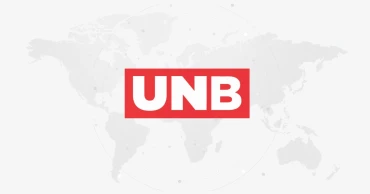Forum
Huawei promises more innovation to push 5G operations ahead globally
Global giant Huawei’s chairman Ken Hu on Tuesday (October 25, 2022) promised to expand its investment and enhance innovation for ensuring better telecommunication under the 5G regime across the world.
"5G has grown faster than any previous generation of mobile technology," Hu said in a keynote paper at the 13th Global Mobile Broadband Forum 2022, which began in Bangkok on Tuesday.
"In just three years, we've seen solid progress in network deployment, consumer services, and industry applications,” he added saying that more than 230 carriers around the world have already launched commercial 5G services.
Read:Huawei ICT Incubator announces top 6 startups from Bangladesh
In total, he said, the industry has set up over three million 5G base stations, serving more than 700 million subscribers.
"5G is in the fast lane," Hu said. “But there's more we can do…We need to work together to fully unleash the power of 5G networks and expand into services like cloud and system integration,” he said.
Chinese company Huawei, together with its industry partners GSMA and GTI, is hosting the two-day event. Organisers say mobile network carriers, vertical industry leaders and ecosystem partners from around the world will discuss how to make 5G a commercial success, as well as other high-priority industry topics like green development, intelligence, and 5G evolution.
Read:Huawei, RedDot team up to develop Bangladesh cloud market
Hu said that in telecoms, consumer services still account for the bulk of carrier revenue.
But now, he said, as 5G becomes more prevalent, its vastly superior experience is driving new shifts in consumer behavior, including a sharp rise in high-definition video traffic.
He also said B2B 5G applications are also becoming a new engine for carrier revenue growth, producing considerable value in industries like oil and gas, manufacturing, and transportation.
Read Huawei launches its largest-ever regional Seeds for the Future Program
He said these applications are not only innovative – they're generating real commercial value for carriers. In 2021, for example, Chinese carriers brought in over $500 million in new revenue from more than 3,000 industrial 5G projects.
“B2B 5G applications are poised to become the fastest growing revenue stream for carriers. 5G is enabling new service scenarios, applications, and business models, paving the way for unprecedented growth opportunities in the industry,” he said.
He said to keep this momentum the carriers should work together.
Read Huawei cloud, digital power teams onboard 60 fresh graduates
"The industry needs to come together to define standards, prepare the spectrum, and build out the ecosystem," said Hu.
“Industry digitalisation is the next wave of global economic development. As a key enabler of digital transformation, 5G opens up a world of new opportunities. But the ICT ecosystem needs to work together to make the most of them,” he said.
He said Huawei would continue to follow the trend of innovation.
Read Huawei: Maximise network resources for 5G's commercial success
3 years ago
Huawei organizes Asia-Pacific Higher Education Innovation Forum on smart education tools
Huawei organized recently the Asia-Pacific Higher Education Innovation Forum through live streaming with the theme Embracing the New Era of Intelligent Education.
The forum invited industry experts from UNESCO ICHEI, NUS, Open University, Thammasat University, National University of Malaysia, and PwC, including 450 informatization directors, partners, and business luminaries.
The forum focused on topics such as smart campus, online education, and smart classroom and discussed the development trend of education ICT and the challenges and opportunities for education informatization in the post-pandemic era.
READ: Huawei's largest cybersecurity, privacy protection transparency centre launched
At the opening ceremony, Nicholas Ma, President of Huawei Asia Pacific Enterprise Business Group, shared Huawei’s understanding of ICT development in higher education in the Asia-Pacific region, as well as its vision of smart higher education in the future.
Professor Zhao Jianhua, Senior Specialist of UNESCO ICHEI, shared his insights on the exciting new trends in education. According to Prof. Zhao, today’s education industry is being shaped by five major digital technologies: AR, personalized hybrid learning, gamification, AI, and IoT. What’s more, there will be five new applications in the education industry: a more efficient learning system, mental health monitoring, personalized distant education, automated data processing, and personalized collaborative education.
Read Women continue making amazing contributions in STEM fields: US
The recent disruptions to the world in the last 18 months have severely affected university education around the world. Many teachers and students can no longer go to school like they used to. During the panel session of this forum, the panellists explored how universities in the Asia-Pacific region use ICT to offset this impact, what plans and visions they have for future teaching and management models, and how to accelerate the digital transformation of universities.
Assoc. Professor Dr. Nurhizam Safie (Deputy Dean (Networking & Alumni), IST Faculty Universiti Kebangsaan Malaysia) stressed that the critical success factor for digital transformation in higher education is to embrace the new online pedagogy and it’s really about effective change management and managing the transition to online learning.
Read Huawei brings financial aid, free service for Asia-Pacific SMEs
Many universities are facing similar problems, such as a lack of teacher-student-classroom interaction, the insufficient sharing of education resources, difficult management due to scattered school services, high energy consumption, and low decision-making efficiency. It has become a priority for education administrators and teachers to tackle such challenges.
At this forum, Shi Ri, Huawei APAC, introduced the Huawei Smart Campus Solution and Smart Classroom Solution designed for higher education.
Huawei has been working in collaboration with industry-leading partners and is leveraging its cloud platform to provide E2E smart education solutions that cover smart devices, converged networks, and teaching and management applications for university customers in multiple countries, including South Africa, Italy, and UAE.
READ: Huawei joins Responsible Business 2021
4 years ago

.jpg)
